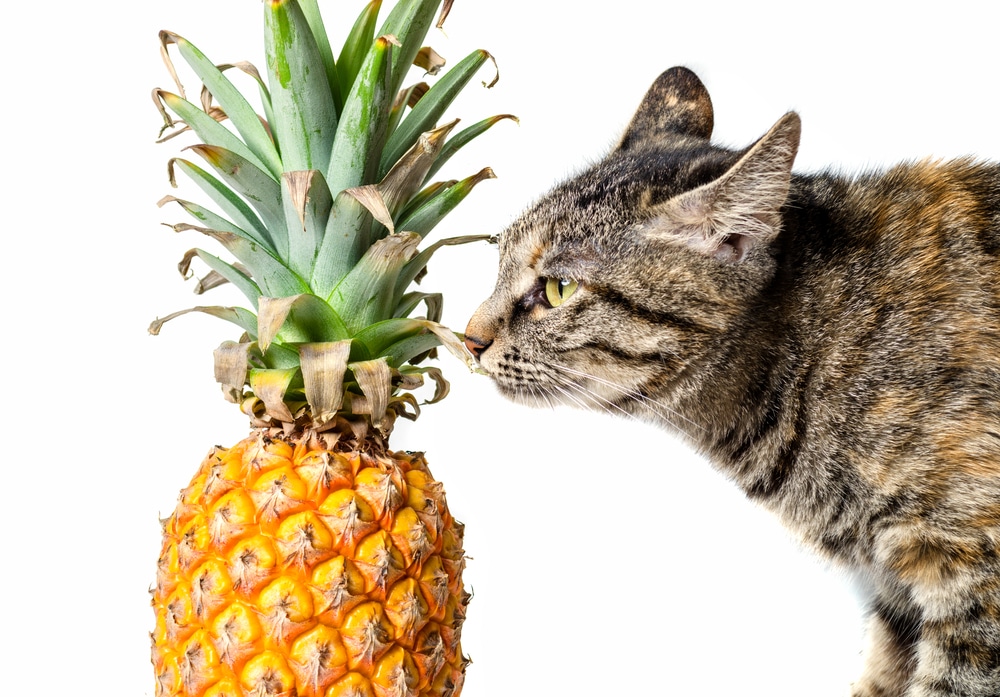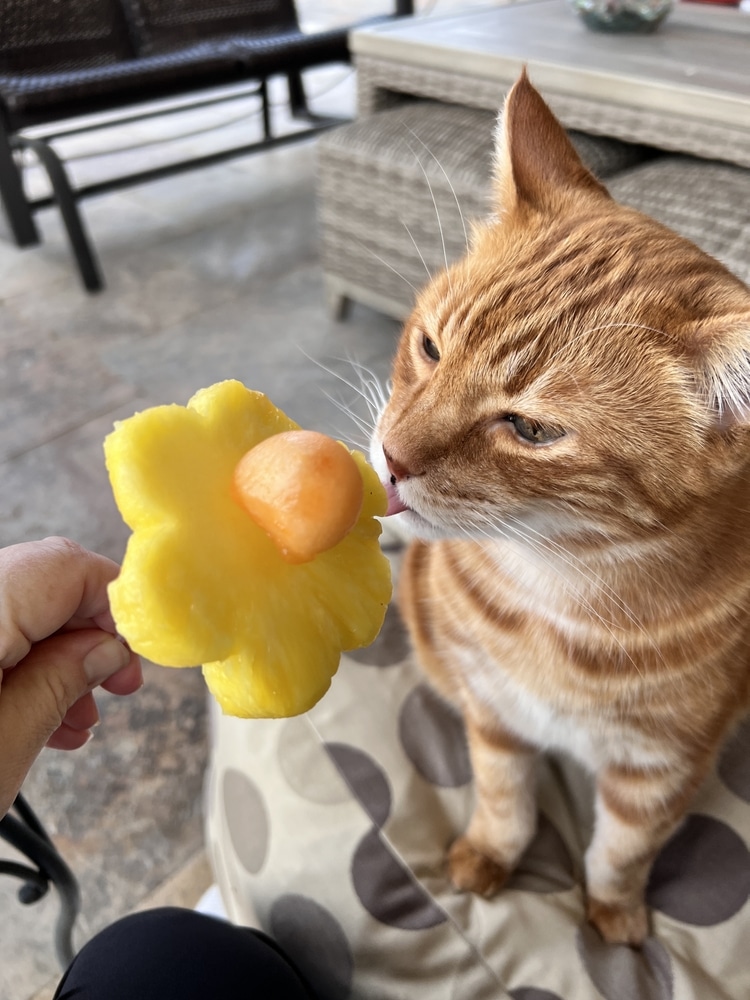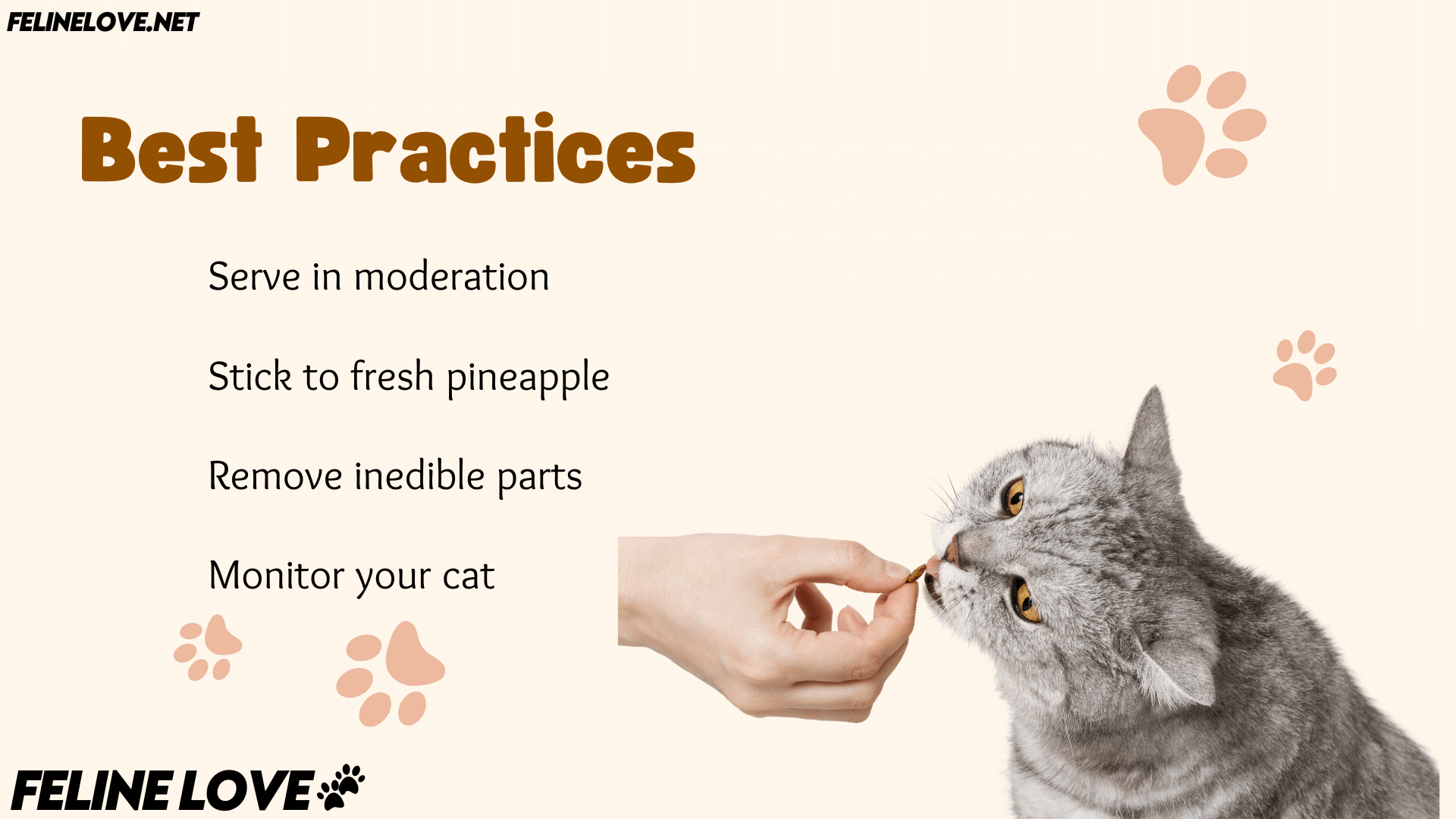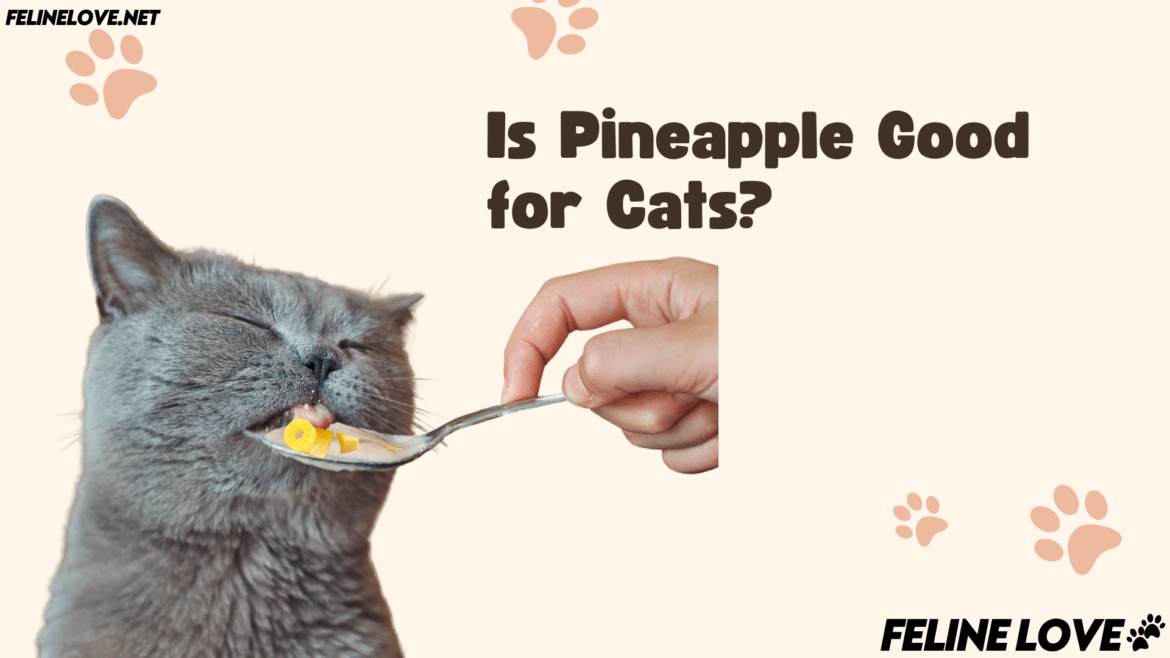Table of Contents
Cats are curious creatures, often intrigued by the foods their humans eat. If you’re enjoying a slice of pineapple, you might wonder: can cats have pineapple? While it’s tempting to share snacks with your feline friend, it’s crucial to understand how this tropical fruit might affect them. Pineapple, rich in vitamins and natural sugars, can seem like a healthy treat, but is it safe for cats? Understanding the potential benefits, risks, and how to serve it properly is key. Let’s explore whether cats can eat pineapple, how it fits into their diet, and the precautions you should take to ensure your pet stays healthy while satisfying their curiosity.  Is Pineapple Good for Cats?
Is Pineapple Good for Cats?
Pineapple is packed with vitamins and minerals, making it a source of vitamin C, manganese, and vitamins B6. These nutrients offer numerous health benefits for humans, but what about for cats? Cats are obligate carnivores, meaning their nutritional needs are primarily met through meat. While the nutrients in pineapple aren’t essential for cats, a small amount of this fruit can be a fun treat in moderation.
When given in small pieces, pineapple can provide a refreshing snack for your cat. However, it’s crucial to monitor how your feline friend reacts, as every cat has different dietary tolerances.
Risks of Feeding Pineapple to Your Cat
Although pineapple has some nutrients, it also has potential downsides. For one, its high sugar content can be problematic. Cats don’t naturally process sugars well, and consuming too much can lead to weight gain or other health issues.
Additionally, some parts of the pineapple, such as the core and pineapple leaves, are toxic to cats. These parts are tough to digest and can cause choking or gastrointestinal blockages. Always remove these before offering pineapple to your cat.
Another risk is an allergic reaction. While rare, some cats may develop symptoms like itching, swelling, or vomiting after consuming pineapple. If you notice these signs, discontinue feeding pineapple immediately and consult your vet.
Is Pineapple Bad for Cats? Understanding the Do’s and Don’ts
You might ask, is pineapple bad for cats? The answer depends on how it’s prepared and the amount consumed. Fresh pineapple in moderation is not inherently harmful, but canned pineapple is often preserved in sugary syrups, which are bad for cats.
Excessive sugar from pineapple or other fruit and vegetables can disrupt a cat’s diet, leading to digestive issues or even diabetes over time. So, while pineapple isn’t necessarily bad, it’s not the best snack choice for cats. 
Is Pineapple Safe for Cats?
Yes, fresh pineapple in small amounts is generally safe for cats, provided the fruit is properly prepared. Ensure you offer only the soft, fleshy part of the fruit, free from the tough core and any pineapple leaves. This preparation minimizes the risk of choking or ingesting something indigestible.
When introducing pineapple to your cat for the first time, start with a tiny portion to see if they tolerate it. Not all cats enjoy the taste, and some may refuse to eat pineapple altogether.
Understanding Your Cat’s Interest
While it’s not a natural part of their diet, some cats enjoy the sweetness and texture of pineapple. If you’ve noticed your cat showing interest in pineapple, you might wonder, do my cat eat pineapple? They can, but it doesn’t mean they should make it a regular habit. Cats often show interest in human foods, but this doesn’t always translate to a nutritional need or preference.
Health Benefits
If your cat tolerates pineapple, the occasional nibble can offer minor health benefits. The vitamins and minerals in pineapple, such as manganese and vitamins B6, support enzyme function and immune health. However, these benefits are minimal compared to what cats receive from their regular diet of protein-rich cat food.
Feeding Pineapple to Cats – Best Practices

If you’re considering feeding pineapple to your cat, follow these tips to keep it safe:
Serve in moderation: Offer only small pieces to avoid overwhelming your cat’s digestive system.
Stick to fresh pineapple: Avoid canned or processed pineapple, as these often contain added sugars that are bad for cats.
Remove inedible parts: Cut away the core and discard any pineapple leaves, as these are toxic to cats.
Monitor your cat: Watch for any signs of discomfort or an allergic reaction after feeding pineapple.
Final Thoughts
The relationship between cat and pineapple is one of curiosity and moderation. Can cat have pineapple? Yes, but only under specific circumstances. Fresh, prepared pineapple in small pieces can offer novelty and minor nutrients without posing significant risks.
However, the high sugar content and potential choking hazards mean pineapple should be given sparingly. Cat are better off deriving their nutritional needs from high-quality cat food, with treats like pineapple kept as an occasional indulgence.
If you’re ever uncertain about introducing a new food to your cat, consider consulting an online service or speaking directly with your veterinarian. This ensures that your feline friend stays healthy and happy without unnecessary risks.
In conclusion, while cats can eat pineapples, it’s not a necessary or highly beneficial addition to their diet. Be mindful of preparation, moderation, and your cat’s individual preferences. If you’re still wondering is pineapple good for cats or is pineapple bad for your cat , the answer lies in how responsibly you introduce this tropical fruit to your furry companion.

